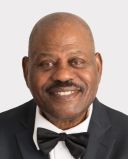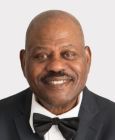Happiness
Everyone Has a Calling
What's your calling? And how can you tell?
Posted February 29, 2024 Reviewed by Michelle Quirk
Key points
- In addition to the ability to hope, each of us is gifted with an exceptional talent.
- Many live their entire lives without ever identifying their true calling.
- Those who pursue their passion achieve sustained satisfaction, personal fulfillment, and true contentment.
In addition to the ability to hope, with which we are all endowed (as humans), each one of us is also individually and uniquely gifted with an exceptional talent in one or two particular areas of human endeavors—such as music, poetry, mathematics, carpentry, masonry, law, entertainment, engineering, business, parenting, oratory, surgery, sports, journalism, etc. A successful discovery of your true calling (when combined with the capacity to hope) can make an immense difference in the quality and scope of personal achievements and overall fulfillment in life.
Lamentably, many live their entire lives without ever identifying their calling. Consequently, they never achieve their full potential and become optimally accomplished or fulfilled. I have often wondered what could have become of Mozart or Marie Curie if their talent in music and science, respectively, had never been unmasked. What other possible life endeavors could they have pursued as successfully, and how accomplished or consequential to humanity would they have turned out to be under this alternative scenario?
Some of us just luckily “stumble” on our true calling purely by chance, and as a result, become quite successful and accomplished in life. Such was the case with Dan Gilbert, the world-famous psychologist who at the age of 19 was a high-school dropout daydreaming about writing science fiction. When he attempted to enroll in a creative writing class at a community college, the class was already full, so he instead registered in the only available course, which happened to be psychology. There, he found his true passion and the opportunity to express his latent aptitude in the study of human behavior. He excelled and ultimately earned a doctorate in psychology at Princeton University, became a professor of psychology at Harvard, and wrote a best seller on the subject of happiness with translations made available in over 20 languages due to popular demand. Among his other many laurels was the Phi Beta Kappa Award for excellence in teaching—all made possible as a result of the serendipitous discovery of his true niche or calling.
Much more often, a provoking event usually ignites our hidden talent or awakens a latent passion in us and ultimately causes us to soar, sometimes much farther than we had ever dreamed or imagined. Such a triggering event or incidental catalyst commonly arises in one of four possible situations:
- As a result of a transformative single encounter or relationship with an iconic personality
- Following a momentous spiritual inspiration or profound religious experience
- After a painful loss, severe deprivation, or tragic event
- During an occasion of personal curiosity or solemn introspection.
Curiosity was the trigger in the case of Adam Steltzner, a young man who floundered around seemingly without any aim in life. He was a wannabe hard rock star with pierced ears and a funny haircut. His apparent priorities during high school were sex, drugs, and rock ’n' roll. Even his father believed Adam would never amount to anything other than a ditch digger.
One night, while on his way home after playing bass guitar at a club, Adam became fascinated after he happened to observe the movements of the stars in the constellation of Orion. Though he was a high-school dropout, he was somehow driven by personal curiosity to enroll in an elementary physics course at a community college to gain some basic understanding of the movements of stars in the sky. While attending that class, he got intellectually hooked, found his true niche, and eventually ended up with a doctoral degree in physics. He later became a top rocket scientist and eventually the team leader of the NASA unit that designed, built, and directed the unmanned space exploratory rover named Curiosity, which successfully landed on Mars on August 5, 2012.
As inspiring and enviable as these two stories are, it is of course not advisable to leave one’s fate and fulfillment in life entirely to chance by passively waiting until a sudden event or encounter, misfortune, or tragedy jolts us into action on the right path. On the contrary, these stories, more importantly, reveal that each of us has a calling waiting to be unveiled so we can be set free to soar, especially if and when we also have the right dose of hope or the power to dream.
During my 35 years of research on human hope, including a thorough review of hundreds of biographies, I have consistently found that those who pursue their passion are invariably the ones who ultimately achieve sustained satisfaction, personal fulfillment, and true contentment in life. I believe that when the human capacity to hope is combined with the pursuit of one’s true calling, a life of fulfillment is not only predictable but also inevitable.
Accordingly, my sole recommendation to anyone who wants to achieve a truly gratifying and fulfilling life is to first and foremost, find his or her true calling.
To achieve this important task, do the following:
- Identify one endeavor (a job or a hobby) that you are truly passionate about.
- Make sure that the endeavor is inclusive and relevant to others or somehow altruistic.
- Ensure it makes good economic sense or is financially sustainable.
- Verify that it is challenging, engaging, and demanding enough but enjoyable.
- Confirm it has some spiritual appeal or is somewhat wholesome.
In other words, if you identify any endeavor or a hobby that you are truly passionate about, serves others, and is resource-reasonable, practically challenging, and spiritually awakening or soul-enlightening—hold on tight to it. That is your calling and therein lies your true fulfillment in life—predictably and inevitably.
For more, see my book The Happiness Formula: A Scientific, Groundbreaking Approach to Happiness and Personal Fulfillment (2024).
References
1. Alphonsus Obayuwana. (2024). The Happiness Formula: A Scientific, Groundbreaking Approach to Happiness and Personal Fulfillment.
2. Trying to find your calling? These 16 tips will get you started. (Maggie Wooll, 2022).




